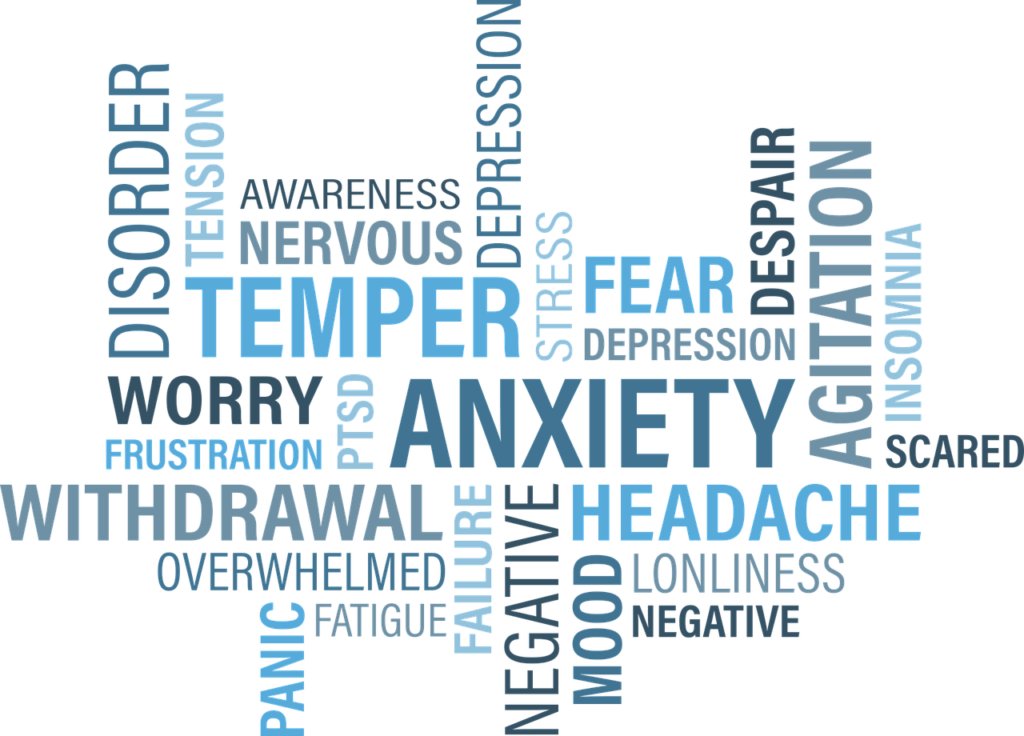 Anger, irritability and aggression towards other people are very common and may accompany psychological discomfort in anxiety disorders, depression, personality disorders and learning disabilities (Sukhodolsky et al., 2016).
Anger, irritability and aggression towards other people are very common and may accompany psychological discomfort in anxiety disorders, depression, personality disorders and learning disabilities (Sukhodolsky et al., 2016).
The prevalence rates of aggression episodes among children with learning disabilities and adults with intellectual disabilities vary from 3.3% to 36%. Aggressive behaviors generally have a long-term course and may lead to social exclusion.
 Cognitive-behavioral therapy has been shown to be effective in aggressive subjects suffering from learning disabilities during childhood and intellectual disabilities during adulthood (Hassiotis & Hall, 2008).
Cognitive-behavioral therapy has been shown to be effective in aggressive subjects suffering from learning disabilities during childhood and intellectual disabilities during adulthood (Hassiotis & Hall, 2008).
Video excerpt from the Disney Pixar movie “Inside out” (2015), written and directed by Pete Docter and Ronnie del Carmen:
https://www.youtube.com/watch?v=Vzc8M51R9v4
The two most common therapeutic interventions to manage anger in children are parents formation and cognitive-behavioral therapy. The first method’s goal is improving family interaction patterns that generate aggressive behavior in children. Cognitive-behavioral therapy allows for better regulation of emotions by overcoming difficulties in solving problems often associated with aggressive behaviors during childhood, adolescence and adulthood. The two forms of treatment have been widely supported by scientific studies. The role of poverty in emotional response after behavioral therapeutic intervention in children with mood and anxiety disorders would be more explored (Sukhodolsky et al., 2016).
 In adults direct interventions based on cognitive-behavioral methods include psycho-physical relaxation and exercise in the use of self-relieving to solve problems and manage anger. These therapeutic strategies would seem to have some impact on reducing post-treatment aggressive behavior with well-being maintained up to six months (Hassiotis & Hall, 2008).
In adults direct interventions based on cognitive-behavioral methods include psycho-physical relaxation and exercise in the use of self-relieving to solve problems and manage anger. These therapeutic strategies would seem to have some impact on reducing post-treatment aggressive behavior with well-being maintained up to six months (Hassiotis & Hall, 2008).
Self-destructive anger would also play an important role in the worsening of anxiety-depressive symptoms. A proper management of anger would lead to decreased ruminations with improved anxiety-depressive symptoms (Katsumata, 2015).
 When psychological management of anger and aggression in adulthood is not enough, it is useful to associate psychiatric drugs with psychotherapy such as low dose of antipsychotics and/or mood tone stabilizers. This is advisable for subjects who, because of their aggressive behaviors, find it difficult to set up or maintain social relationships, manifesting an important impairment of quality of life.
When psychological management of anger and aggression in adulthood is not enough, it is useful to associate psychiatric drugs with psychotherapy such as low dose of antipsychotics and/or mood tone stabilizers. This is advisable for subjects who, because of their aggressive behaviors, find it difficult to set up or maintain social relationships, manifesting an important impairment of quality of life.
References:
Hassiotis AA & Hall I. Behavioural and cognitive-behavioural interventions for outwardly-directed aggressive behaviour in people with learning disabilities (2008). Cochrane Database Syst Rev. (3): CD003406.
Katsumata Y. [The effects of self-anger on rumination and on mental health] (2015). Shinrigaku Kenkyu. 86(4): 313-22.
Sukhodolsky DG et al. Behavioral Interventions for Anger, Irritability, and Aggression in Children and Adolescents (2016). J Child Adolesc Psychopharmacol.
Dr. Tiziana Corteccioni
MD, Specialist in Psychiatry, Psychotherapist.
Psychiatrist and Psychotherapist, Cognitive behavioral therapist.
Since October 2010 she has been collaborating with Centro Ricerche Musicali (Centre of Musical Research) in Rome in a project named “Emotions Music” aimed to people with emotional difficulties. She’s coauthor of scientific publications.
Since November 2013 she has been collaborating with the Associazione di Clinica Cognitiva (Clinical Cognitive Association) in Lazio.
She pursues activities as psychiatrist and psychotherapist at several clinical centres in Rome and Perugia in which cures, through prescriptions and psychotherapy sessions, sleep disturbances, depression, bipolar disorder, panic attacks, phobias, obsessive-compulsive disorder, eating disorders, personality disorders, addictions and schizophrenia.
